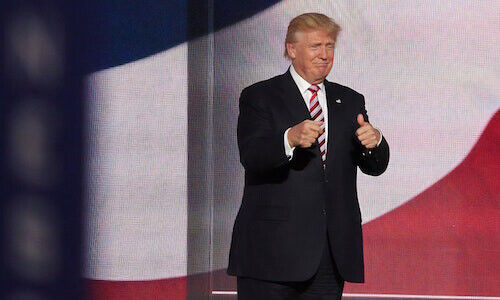Chinese Equities: Donald Trump's Final Act
The sitting U.S. President’s barrage against Chinese equities could finally see its end as he is expected to clear a bill to enforce consistent auditing standards. finews.asia takes a look at who could be the winners and losers.
Hundreds of Chinese firms listed on American exchanges with a total value in the trillions are set to face increased scrutiny as U.S. President Donald Trump is expected to sign the «Holding Foreign Companies Accountable Act» that will require the usage of approved auditors after passing the House earlier this month.
This follows a series of major accounting scandals spotlighted amongst U.S.-listed Chinese firms including fraudulently inflated sales figures of over $300 million at Luckin Coffee and collateralized loans linked to 83 tons of fake gold bars found to be made by gilded copper.
How is this affecting regulators, investors and other stakeholders?
Delisting Risk
After becoming law, foreign issuers in the U.S. which decline audit reviews for three years could face delisting. Larger firms and those with secondary listings such as Alibaba and JD.com not expected to see a significant impact, although smaller ones could face the risk of going private and potentially damaging share prices.
But despite flaring tensions elsewhere, this one of the rare areas in U.S.-China relations where there appears to be conciliatory desires with China Securities and Regulatory Commission vice-chairman Fang Xinghai stating that Beijing was «very sincere» about compliance even though it retained concerns about national security risks.
Exchanges Shift
Many onlookers, such as Vanguard principal Rodney Comegys expect Chinese firms that are eventually booted to shift their listings from New York to Hong Kong.
Time will tell if such moves will indeed benefit the Hong Kong exchange and confirm its outgoing chief executive Charles Li Xiaojia’s prediction that the hub’s «glory days are not over» or if it will generate unwanted risk and materialize Trump’s forecast that its markets will «go to hell».
Less Liquidity
As markets grind higher in the middle of a historic health crisis, some investors are increasingly convinced by the school of thought that valuations are not driven by economic fundamentals but, instead, by excess liquidity provided by central banks.
Household names that are dual-listed in Hong Kong and New York are not expected to see major impact especially amongst institutional investors who have already shifted holdings in anticipation of delisting risk. Temasek, for example, reportedly made the exchange swap in September of its $3 billion stake in Alibaba.
But in addition to reviewing re-IPO plans for over 100 firms that do not have a secondary listing, liquidity could be reduced from tightened retail investor access due to fewer options from brokerage platforms that will require extra paperwork.
Accumulated Risk
If passed, the bill will be yet another piece of legislation in Trump’s campaign against China and its capital markets.
- Page 1 of 2
- Next >>



























